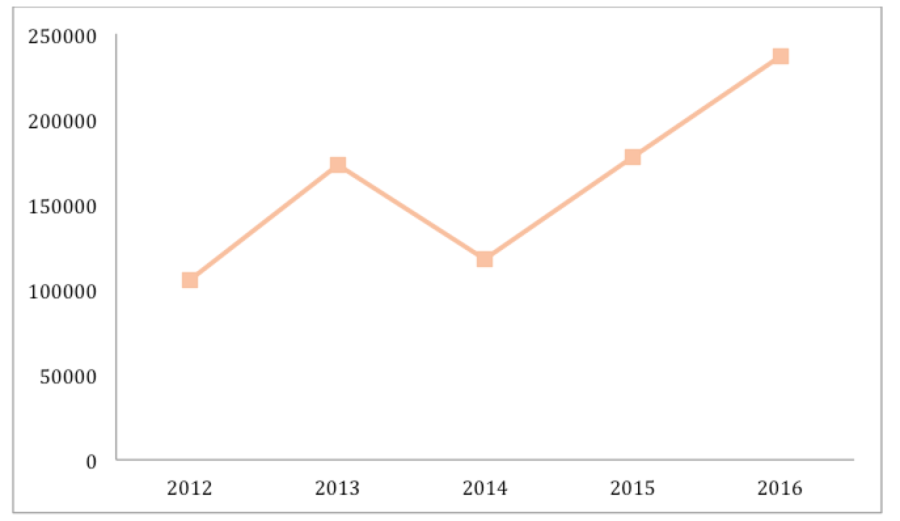It is concerning that decisions about health are influenced by commercial interests instead of sound evidence and common sense, writes Dr Edwin Kruys
It is concerning that those who have been given responsibility to look after the health of Australians take decisions influenced by commercial interests instead of sound evidence and common sense.
As I have said before we have an opiate problem in Australia and it is the responsibility of doctors, pharmacists, consumers and governments to solve it.
One of the opiates that are harmful is codeine. Codeine is closely related to morphine and can cause dependence, addiction, poisoning and, in high doses or in combination with other drugs, death. That’s why in many countries this painkiller, like other opiates, is only available via a doctor’s prescription.
The independent Therapeutic Goods Administration (TGA) has decided to do the same in Australia after extensive consultations with stakeholders including doctors, pharmacy groups and state health departments.
From 1 February 2018, medicines containing codeine will no longer be available without prescription in pharmacies. There will still be safe and equally effective alternatives available through the pharmacy without a script.
Unfortunately some of the stakeholders are undermining this process, putting patients at risk.
Wheeling and dealing
Publicly the Pharmacy Guild of Australia states that it is not seeking to overturn the decision by the TGA. It has, in fact cashed in a large sum of money from the federal government to develop and deliver education, information and communications for community pharmacies and patients to enable a smooth transition to the upscheduling of codeine.
However, behind the scenes it seems other things are happening.
For example, shortly after Pharmacy Guild representatives spoke to NSW Deputy Premier John Barilaro, he made the following statement: “(…) the Nationals are calling on the Federal Government to reverse their decision in relation to the way customers can access codeine products over the counter.”
The Guild’s approach was clever: They picked a pharmacy in a town with no doctor, invited Barilaro, took a picture with him and issued a press release thanking the Deputy Premier for his support of the Guild’s ‘common sense’ proposal to allow pharmacists to continue to supply codeine, stating: “What are patients with headache, toothache or period pain meant to do in Harden when there is no doctor within a hundred kilometres for a week at a time? The AMA has no answer.”
The AMA reiterated the concerns around codeine, including that 75 per cent of recent painkiller or opioid misusers reported misusing an over the counter codeine product in the previous 12 months and that these products were even more likely to be misused by teenagers.
The AMA also expressed concern about the Guild’s lobbying of State and Territory Governments to undermine the independent TGA ruling.
The Guild immediately responded on social media saying this was ‘overblown self-serving nonsense from the AMA’.
President of the Royal Australian College of General Practitioners (RACGP) Dr Bastian Seidel reminded Guild representatives that opiate painkillers including codeine are not normally recommended for tension-type headaches.
A good explanation of some of the problems with codeine can be found in this article written by a pain specialist from Deakan University: Over the counter codeine gives as many headaches as it fixes.
Substandard rural solutions
Sales of codeine-containing medications without script represent a revenue of $150 million per year for pharmacies.
The Guild has been busy lobbying State Health Ministers – successfully, it seems.
This weekend the Australian newspaper reported that all State Health Ministers, except for South Australia, have written to Federal Health Minister Greg Hunt “relaying unnamed stakeholder concerns about the unintended consequences of requiring a script” for codeine. NSW Health Minister Brad Hazzard was one of the signatories on the letter according to the Australian.
Here’s a screenshot of (part of) the letter to Minister Hunt in which the State Health Ministers explain why they are worried about the upscheduling of codeine:

If it is true that people in regional areas are indeed “managing chronic conditions with codeine medications” bought from a pharmacy than that is of course a concern as codeine should not be used for this purpose.
The State Health Ministers seem to implicate in the letter that it is preferable to treat chronic conditions by self medicating with over the counter codeine purchased from pharmacies instead of going to a doctor to get appropriate treatment.
This would indicate a lower standard of care for people in rural and regional areas. The upscheduling decision by the TGA could actually help regional patients receive more appropriate treatment via a doctor and cut out-of-pocket medicine costs.
Cash for access unethical
The Australian also revealed that Queensland Health Minister Cameron Dick, who also signed the letter, failed to disclose seven cash-for-access meetings with Labor donors. One of the donors was the Pharmacy Guild of Australia.
Queensland’s Premier Ms Annastacia Palaszczuk had earlier announced she had a moral responsibility to ban certain donations.
The Guild gets high level access to politicians in all states via significant donations. Their political donations are on the rise (see graph). Concerns have been raised for a while now that the Pharmacy Guild is able to influence healthcare decisions based on commercial principles instead of sound evidence.
The Guild regularly negotiates a massive agreement with the Australian Government to the value of $19 billion for dispensing PBS medicines. This begs the question how ethical it is that the Guild, at the same time, transfers money into the bank accounts of the political parties it is negotiating with.

The Guild’s solution is weak
The Pharmacy Guild said on their website: “When we put our solution to the politicians they think it makes sense, particularly when we explain how up-scheduling alone will mean a loss of convenience and higher costs for patients, as well as the clogging up of GP practices.”
Although the medical profession and health consumer organisations can see through this rhetoric, it appears some politicians have more difficulties and I don’t blame them – at first glance the arguments by the Guild sound convincing.
The recent Health of the Nation report showed that most Australians can see their GP when they need to and are able to get an appointment for urgent medical care within four hours. The argument of ‘clogging up GP practices’ as a reason for over the counter opiates is deceptive and it is probably not the Guild’s place to comment on this.
So let’s look at the Pharmacy Guild’s preferred solution. They believe that pharmacists should continue to sell codeine without a script for acute pain and state pharmacies would monitor misuse via their real-time monitoring software called ‘MedsASSIST’. The Guild continues to remind everyone that they are the only one with this pharmacy software package.
The problem here is first of all that medications issued without a script in a pharmacy must be substantially safe and without risk of misuse.
Clearly codeine is not safe and there is unambiguous international evidence of harm and misuse. So it makes no sense for codeine to be freely available in the pharmacy on the one hand but on the other be subject to real-time monitoring.
There are also serious problems with MedsASSIST. It is not an independent tool but owned by the Guild. Not all pharmacies use it so it is easy to get around for those who use codeine for the wrong purposes.
The Therapeutic Goods Administration has considered the evidence around MedsASSIST and found that it did not lead to a significant number of people being denied codeine medications in the pharmacy.
The TGA mentioned an example where an individual was able to receive 660 codeine tablets in one month despite their purchasing behaviour being tracked by the software. This raises questions about the efficacy and safety of the Guild’s preferred solution. Is it just smoke and mirrors?
The Guild continues to accuse others that they have done nothing to monitor the use of drugs of dependence. This is also incorrect as many groups, including the AMA, RACGP and coroners have repeatedly asked for an effective national real-time prescription monitoring system, accessible by doctors and pharmacists.
What do consumers say?
The Consumers Health Forum has raised concerns about the Guild’s solution and said in their press release: “We do not support the proposal from the Pharmacy Guild of Australia and the Pharmaceutical Society of Australia to allow pharmacists to dispense codeine products without a prescription for people with one-off acute pain under certain conditions.”
“CHF supports the role of TGA as the regulator; we believe overall it does an excellent job of ensuring Australians have access to safety and high-quality medicines. We also note that this decision brings Australia into line with most other developed countries. As recently as July 2017 France has moved to make codeine products prescription only. The evidence for harm from codeine and other opioids is growing and their efficacy in assisting with pain management is coming under more and more scrutiny.”
Other groups also expressed concerns about the Guild’s undermining of the TGA. Pain Australia, the RACGP and the RACP have issued a joint press release. Painaustralia CEO Carol Bennett said:
“Chronic pain is a major health issue in Australia – we need to do much better than offering medications that are often both ineffective and potentially harmful in responding to chronic pain. Providing appropriate pain management should be a much higher priority, particularly in rural locations where reliance on opioids is a significant issue.”
“Painaustralia supports a co-ordinated, whole of sector strategy to address the issue of access to optimal pain management, including public and clinical education programs, linkages between rural health care clinicians via Telehealth with specialist city based services.”
And addiction specialists?
Last month, addiction specialists from the Royal Australasian College of Physicians (RACP) reaffirmed their support to make codeine-based medications available only with a prescription because of the many reports about misuse, addiction, and secondary harm.
The RACP said in a press release: “Addiction is a serious medical condition which should be avoided at all costs. (…) Addiction alters life choices, life chances and life trajectory. Addiction specialists have seen the number of patients with addiction to over the counter codeine grow at an alarming rate.”
“People with persistent pain should talk to their doctor to develop an appropriate treatment plan. This may include a referral to see a pain specialist or pain management clinic to manage their condition on an ongoing basis.”
The response from the Pharmacy Guild: “doctors are missing the point on codeine.”
Conclusion
The Pharmacy Guild of Australia is increasingly becoming a disruptive factor in healthcare. Protection of their significant commercial interests drives behaviour that is not always in the interest of the health of Australians. Feedback or criticism is met with aggressive counter punches. Working with the community pharmacy sector is becoming difficult for other health groups.
It is sad to see because the Guild represents a respectable profession. It appears that the Australian healthcare system, which makes pharmacies dependent on commercial activities, is partly to blame for this situation. I am not accusing anyone of backdoor deals but this whole codeine saga is not a good look. Political donations and cash-for-access programs also seem highly inappropriate, especially in the healthcare sector.
Dr Edwin Kruys is a Queensland GP. This blog was originally published on Doctor’s Bag.


